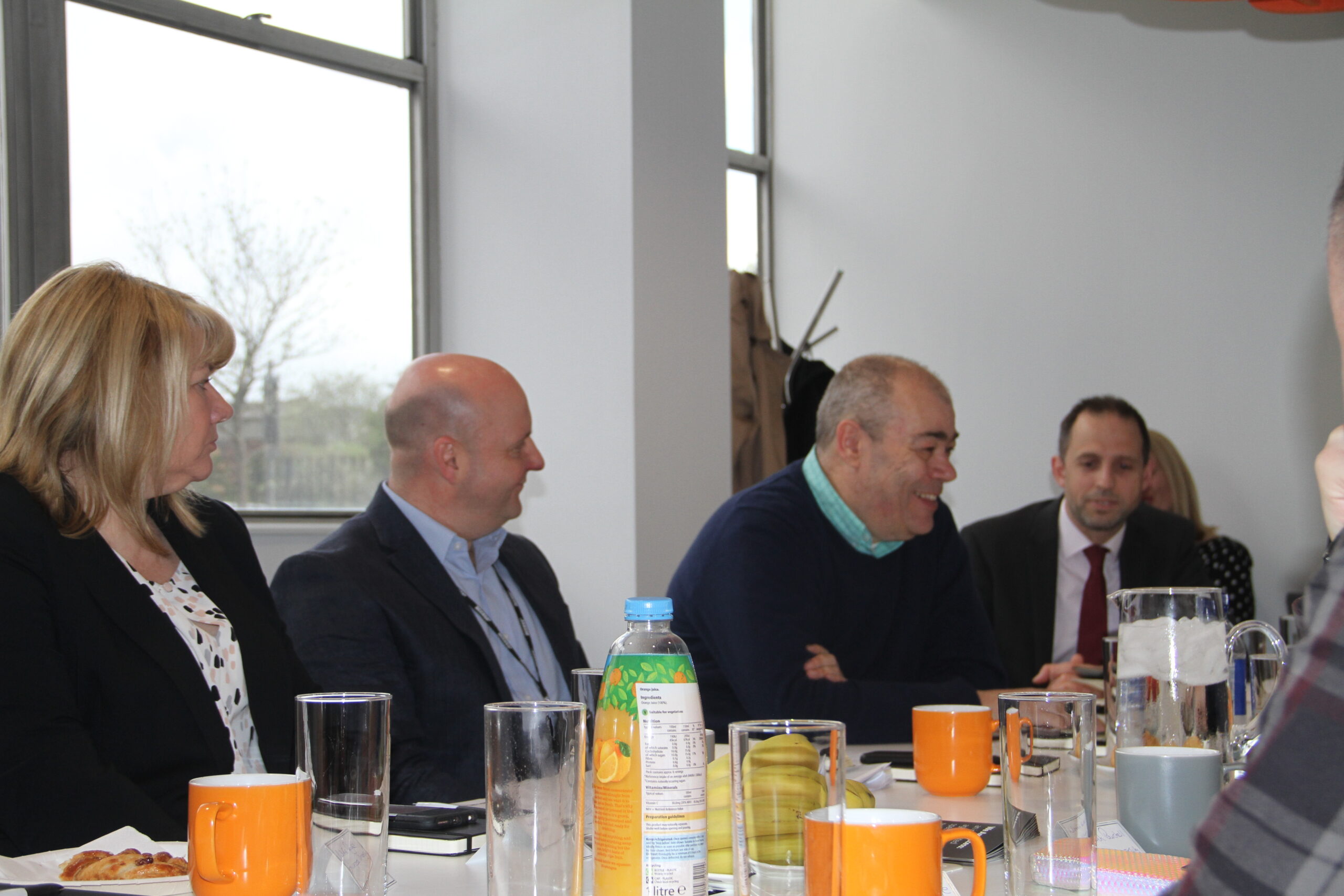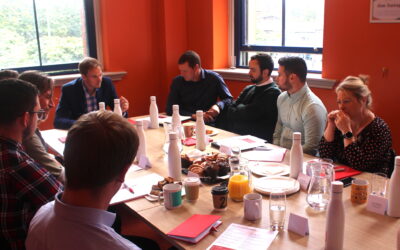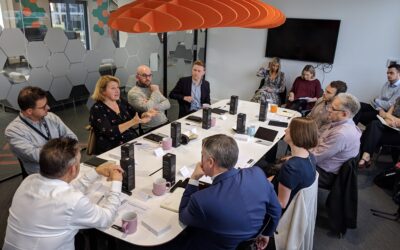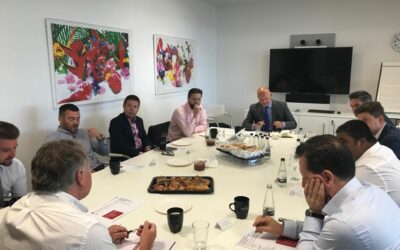Review: Personalisation of Content in the Higher Education Sector Roundtable
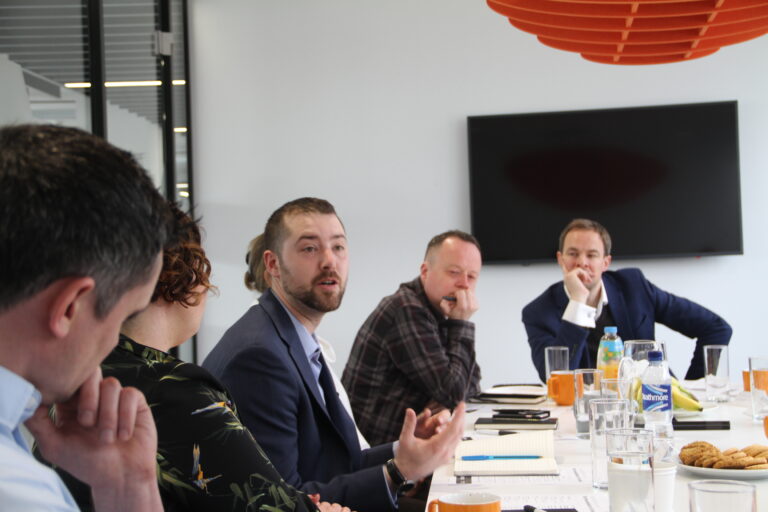
-
by David Prior
Subscribe to the Prolific North Daily Newsletter Today!
Want all the latest content from Prolific North delivered direct to your inbox daily? Of course you do!


Marketers and digital marketers know all too well that the more targeted and personal we can get with messaging, the better we can convert prospects.
In the age of social media and big data, we have access to more information about customers and prospects than ever before, and more ways to reach them too.
At a roundtable event at Trafford House in Manchester last week, hosted by Access and Acquia and chaired by Prolific North, a distinguished panel of higher education marketers came together to discuss what opportunities and challenges today’s innovations and tomorrow’s trends might present for marketers looking to create better, more personalised user experiences.
Our thanks to our sponsors, Access and Acquia. More roundtables are planned for later in the year.
Attendees
- Paul Bason – Director of Digital Innovation, MMU
- Dougal Scaife – Head of Digital Experience & Engagement, Leeds Beckett University
- Hannah Burchell – Associate Director of Marketing & Communications, Salford University
- Ruth Connor – Executive Director of Strategic Marketing, UCLAN
- Andy Simmons – Deputy Head of University Marketing, Manchester University
- Mike Deyes – Director of Digital Marketing, Liverpool University
- Kate McNamee – Head of Global Marketing and Communications, Alliance Manchester Business School
- Stephen Thompson – Head of Digital, Sheffield University
- James Smith – Senior Web Developer, Lancaster University
- Mark Hope, Digital Director, Access
- Daniel Coletta, Account Executive for Northern Europe and Africa, Acquia
General thoughts about personalisation
Kate McNamee at Alliance Manchester Business School said that personalisation only truly works if you understand the customer. She said it was about getting under the skin of customers in a non-creepy way, but that it was not the panacea to everything. Understanding psychological trigger points for activity, for instance, had been some of the most useful research the university had done.
Mike Deyes at Liverpool University said he was in favour of a personalised strategy but wondered how important it was given the time and resources available. He cited an example of a move to geolocation on the university’s website home page which had eventually been dropped as it was deemed to have delivered no real value.
Hannah Burchell at Salford University argued that people don’t in fact like the overuse of personalisation.
MMU’s Paul Bason pointed out that the student journey was a lifelong one, but that the needs of students and alumni – at say the ages of 19, 39 or 49 – were very different.
Dougal Scaife from Leeds Beckett University said it was preferable to use cloud services of off-the-shelf packages as that speeded up implementation of technology. The culture of an organisation was also important, he said.
Some panellists agreed that a low-tech approach continued to bear fruit, such as phone calls.
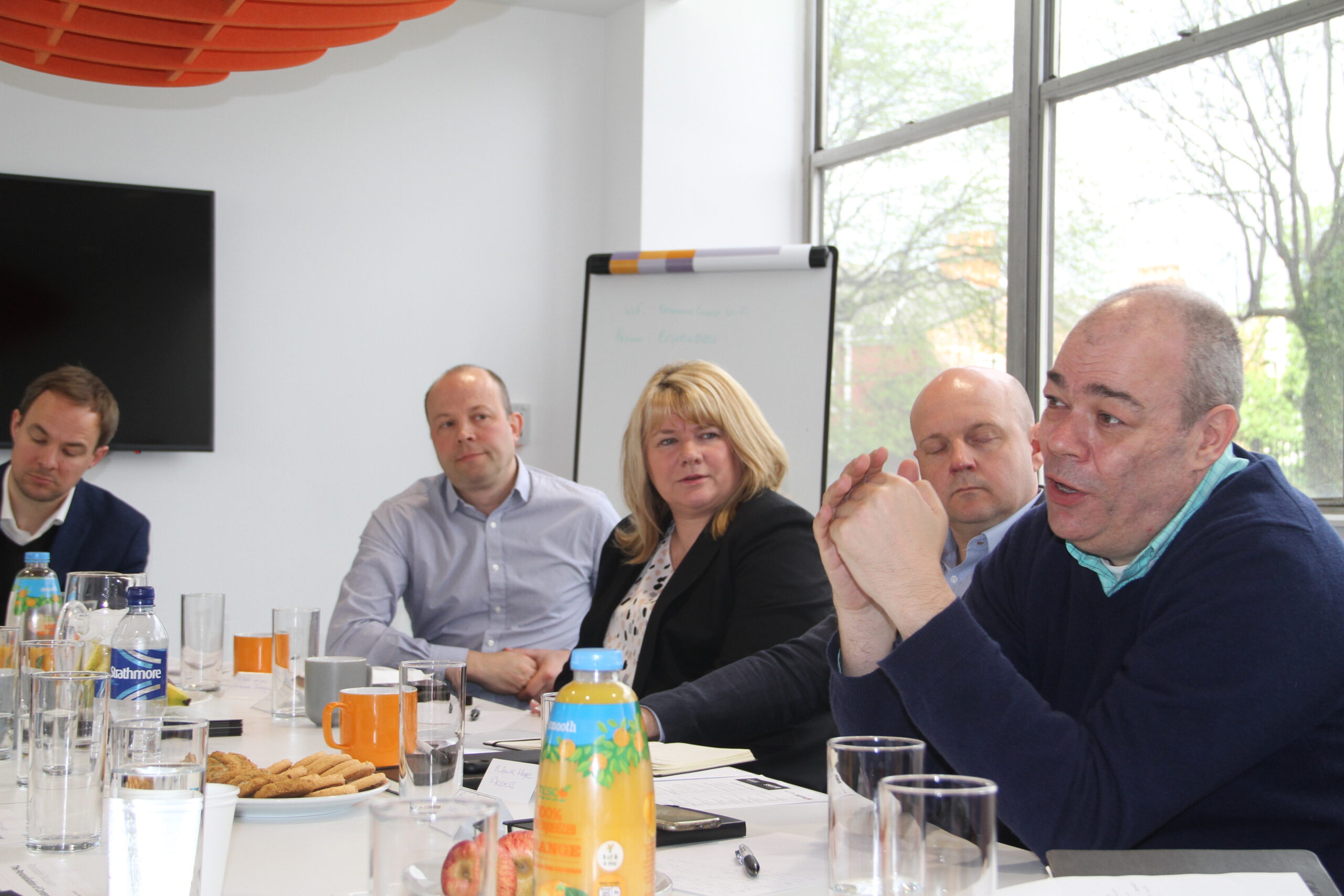
Dougal Scaife at Leeds Beckett University said that one of the effects of personalisation was that academics would often not realise the marketing activities being undertaken because they were not the target audience and were therefore not seeing it.
Kate McNamee at Alliance Manchester Business School said that while there was a range of factors any student should take into account when choosing an institution, there was no denying that rankings tables were a key driver in deciding which programme to study. She said there was a clear correlation, particularly in Asian markets, between their performance in those rankings and recruitment success.
Mike Deyes at Liverpool University agreed that rankings were a very important factor for international students, less so at a local level because the brand was better established locally.
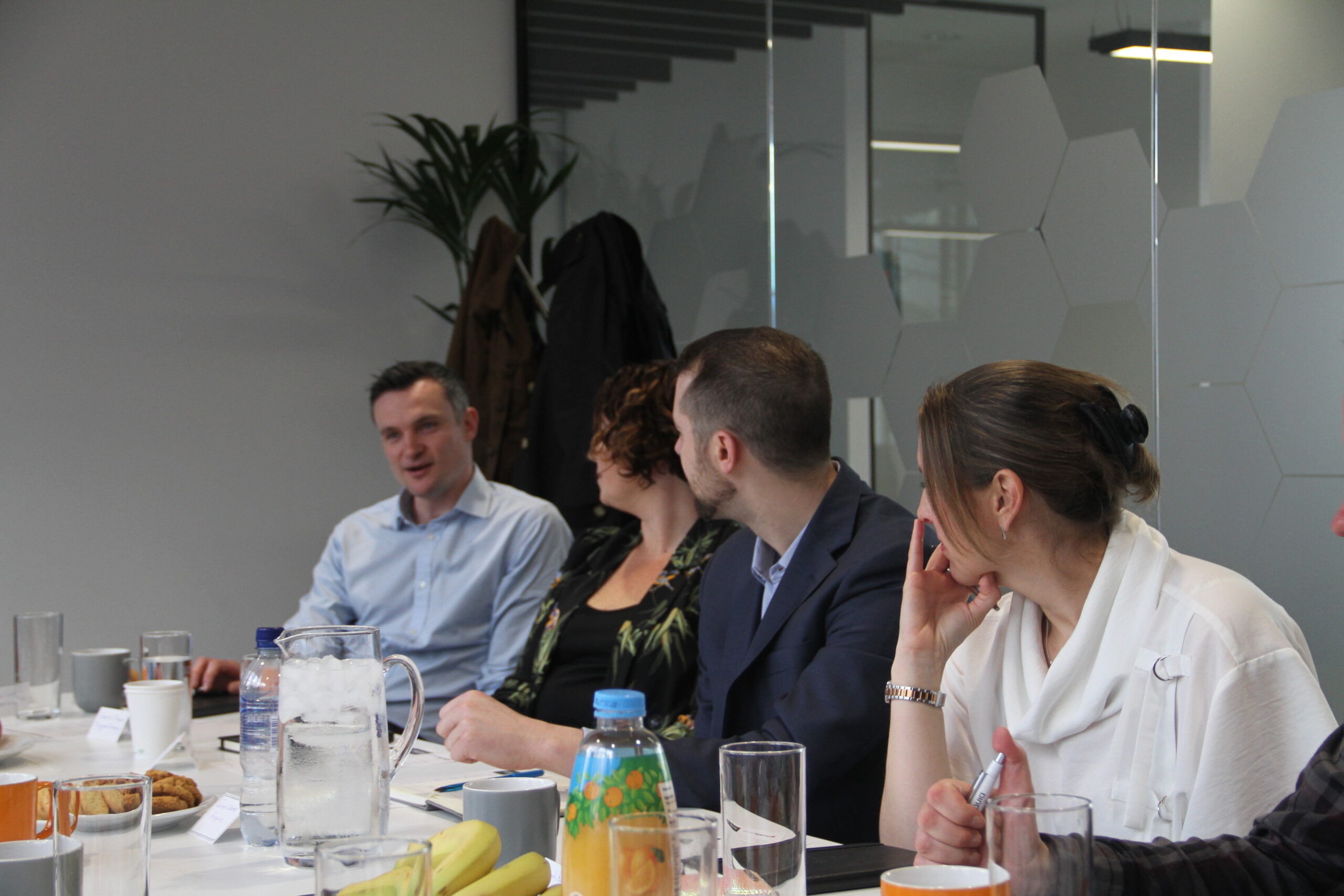
Measurement
Stephen Thompson at Sheffield University said that while its website was set up to tag and track visitors, the final conversion both for undergraduates and postgraduates was usually done offline. He said that closing that loop was not impossible, but relied upon getting all the relevant systems lined up to enable data to be passed between them, or alternatively keeping the whole process in one place.
Mark Hope at Access asked whether any participants were testing personalised content using split-testing techniques. Many round the table agreed. Kate McNamee at MBS did however claim that measurement was ultimately a very difficult thing when you consider the actual conversations that take place with a prospective student – how do you quantify those? It would at the very least require a significant investment in resource, and ultimately is probably a step too far.
Daniel Coletta at Acquia agreed that the conversions happen elsewhere and that there was a question mark over how you proved that the effort and time spent actually produces something measurable. He also pointed out that, having dealt with a number of higher education institutions, it was very important to have an executive or a vice chancellor who understood digital and wasn’t looking for a return within three months.
Ruth Connor at UCLAN said some of her early impressions of the sector related to issues of complexity, ownership and the whole understanding of the customer. She said her focus was on simplification and linking the understanding of the customer to values and objectives in an attempt to improve consistency and lessen knee-jerk reactions. Insight should underpin everything, she said, rather than opinion or subjective views.
Andy Simmons at Manchester University said that talking about ‘customer’ or ‘brand’ was anathema to certain people within universities, and that it was vital to educate senior leaders in order that they were on board with the process. He said that internally he talked about ‘reputation’ rather than ‘brand’, as many academics do not see the university as a business in the mould of McDonalds or Coca Cola.
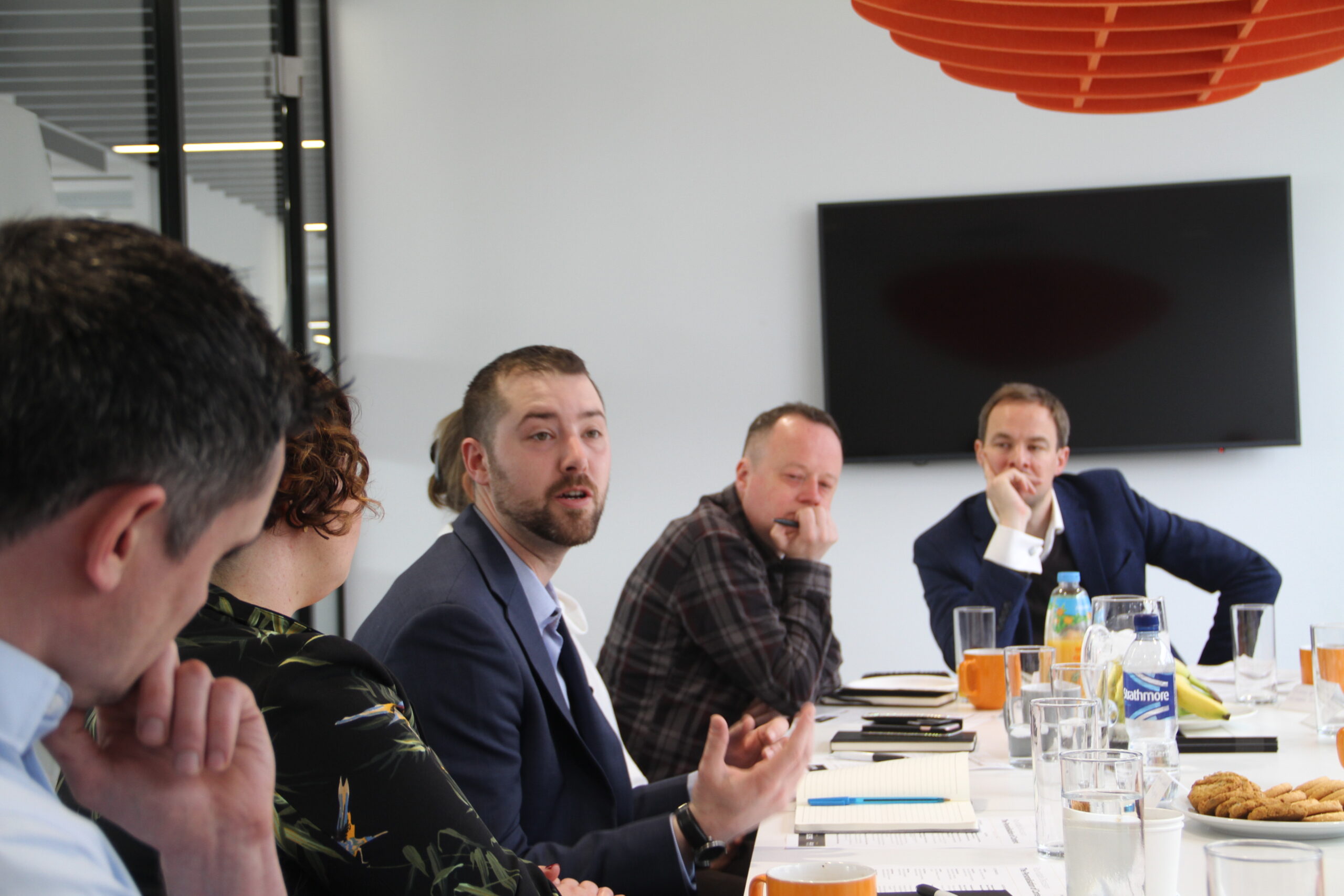
Future
Kate McNamee at Alliance Manchester Business School believes that more smart personalisation – sensibly executed and embracing of innovation – was the way forward. She said that understanding the customer’s needs was at the core and technology should enhance that core objective.
Andy Simmons at Manchester University said that there were still some things that needed to be resolved – such as the university’s technological infrastructure and website – before a fully personalised strategy could be properly pursued.
Mike Deyes at Liverpool University said that more people expected personalisation now but the challenge would be how it is used in the right way, with more of an opt-in about how people’s experiences are personalised. Ultimately it will be the customers that drive the amount of personalisation.
Paul Bason at MMU said that return on investment was key, too, and that we ought to be able to determine whether it was a success or not.
Hannah Burchell at Salford University said the whole journey depended on maintaining the personalisation at the face-to-face level, rather than just online. If you can’t match that, why do it? Ruth Connor agreed that face to face remained the best way of communicating with students.
